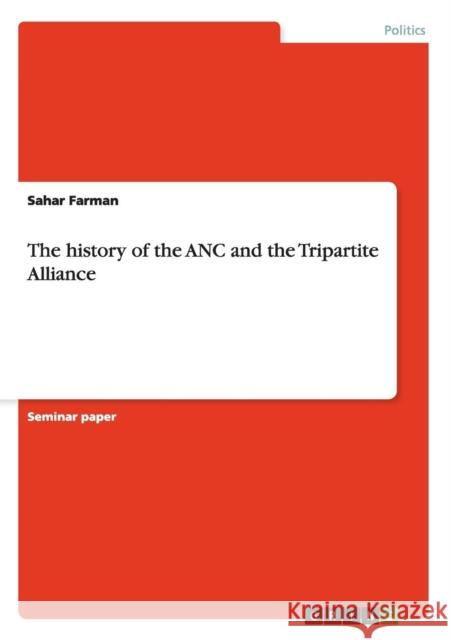The history of the ANC and the Tripartite Alliance » książka
The history of the ANC and the Tripartite Alliance
ISBN-13: 9783640154432 / Angielski / Miękka / 2008 / 36 str.
Seminar paper from the year 2007 in the subject Politics - International Politics - Region: Africa, grade: 1,7, University of Marburg, 13 entries in the bibliography, language: English, abstract: For more than 40 years the South African National Party (NP) was in power governing the country with a racist system of segregation. For the black and colored majority of the country it was a time of fear, harassment, persecution and injustice. Throughout the years the global community was aware of the political situation in South Africa. The major issue of this paper is to examine the positions and campaigns of different countries of the global community toward the situation in South Africa, especially focusing on political and economic reactions from the sixties until 1989. First of all a brief overview will be given on the economics of the apartheid system in order to create an awareness of the general conditions whereupon the strategic importance of South Africa for the global community will be issued. In order to mediate a sufficient background knowledge sanctions will be defined and different sanction scenarios that were possible will be discussed. Subsequently a chronology of sanctions towards South Africa will be given in order to then focus on The Federal Republic of Germany (FRG), its interests in and reactions towards the Republic of South Africa (RSA). Due to the limitation of this paper Germany will be taken as an example for the policies of many Western states. However, several countries will be briefly discussed throughout the paper. While analyzing the different positions during the apartheid era two major questions will be guiding through the paper: 1.How did the countries react? 2.What was/could have been the interest behind the reaction? Finally by having answered these questions a conclusion can be drawn as to whether the global community used all the existing possibilities to help bring apartheid to an end.











